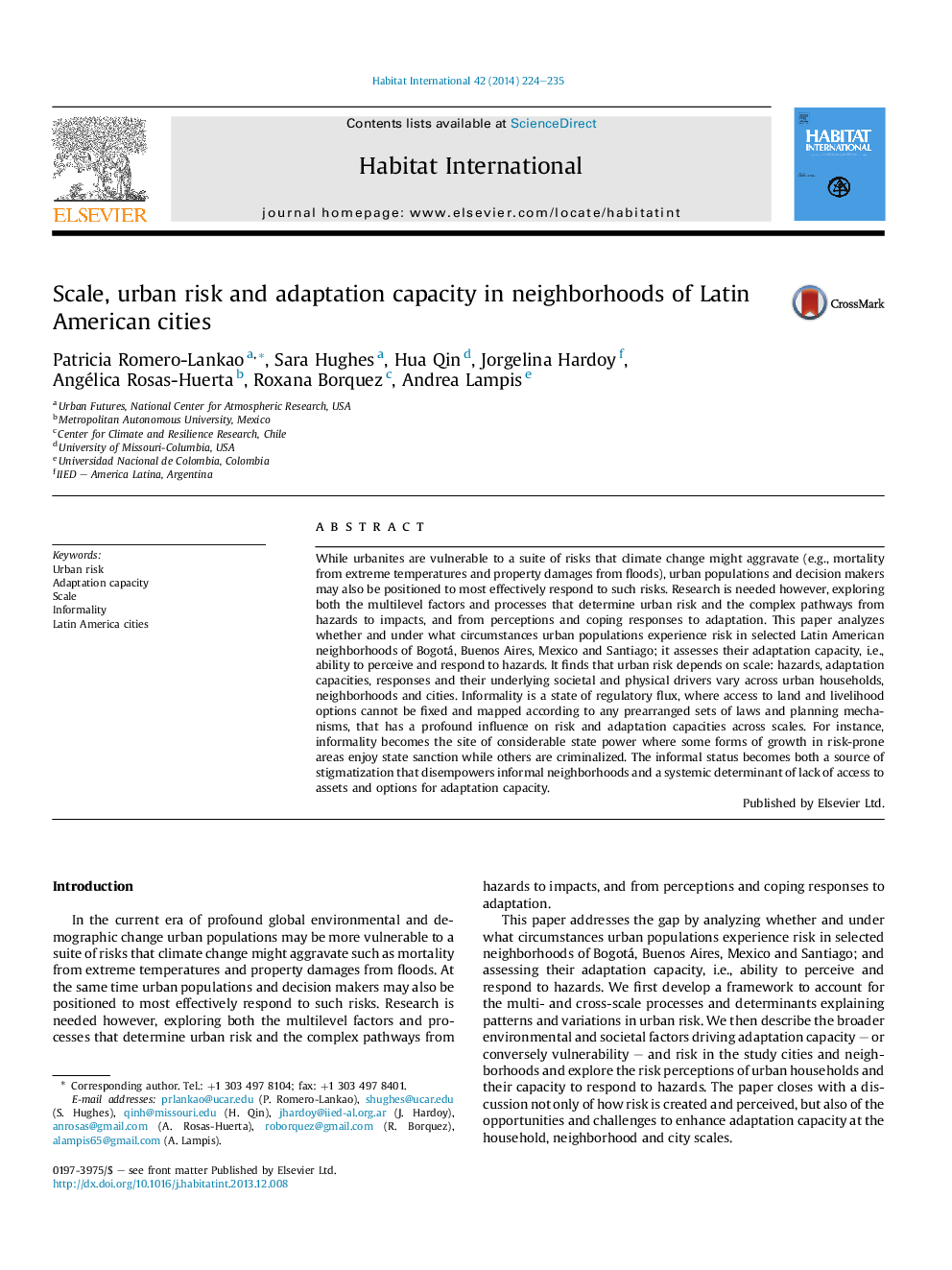| کد مقاله | کد نشریه | سال انتشار | مقاله انگلیسی | نسخه تمام متن |
|---|---|---|---|---|
| 1047977 | 1484500 | 2014 | 12 صفحه PDF | دانلود رایگان |
• Research is needed exploring the multi-scale factors shaping urban risk.
• Both low- and middle income neighborhoods are exposed to a range of hazards.
• Socioeconomic differences between neighborhoods differentiate urban risks within study cities in nuanced ways.
• Adaptation capacity depends on a context specific articulation of environmental and social factors (assets, location).
• Informality has a profound influence on risk and adaptation capacities across scales.
While urbanites are vulnerable to a suite of risks that climate change might aggravate (e.g., mortality from extreme temperatures and property damages from floods), urban populations and decision makers may also be positioned to most effectively respond to such risks. Research is needed however, exploring both the multilevel factors and processes that determine urban risk and the complex pathways from hazards to impacts, and from perceptions and coping responses to adaptation. This paper analyzes whether and under what circumstances urban populations experience risk in selected Latin American neighborhoods of Bogotá, Buenos Aires, Mexico and Santiago; it assesses their adaptation capacity, i.e., ability to perceive and respond to hazards. It finds that urban risk depends on scale: hazards, adaptation capacities, responses and their underlying societal and physical drivers vary across urban households, neighborhoods and cities. Informality is a state of regulatory flux, where access to land and livelihood options cannot be fixed and mapped according to any prearranged sets of laws and planning mechanisms, that has a profound influence on risk and adaptation capacities across scales. For instance, informality becomes the site of considerable state power where some forms of growth in risk-prone areas enjoy state sanction while others are criminalized. The informal status becomes both a source of stigmatization that disempowers informal neighborhoods and a systemic determinant of lack of access to assets and options for adaptation capacity.
Journal: Habitat International - Volume 42, April 2014, Pages 224–235
